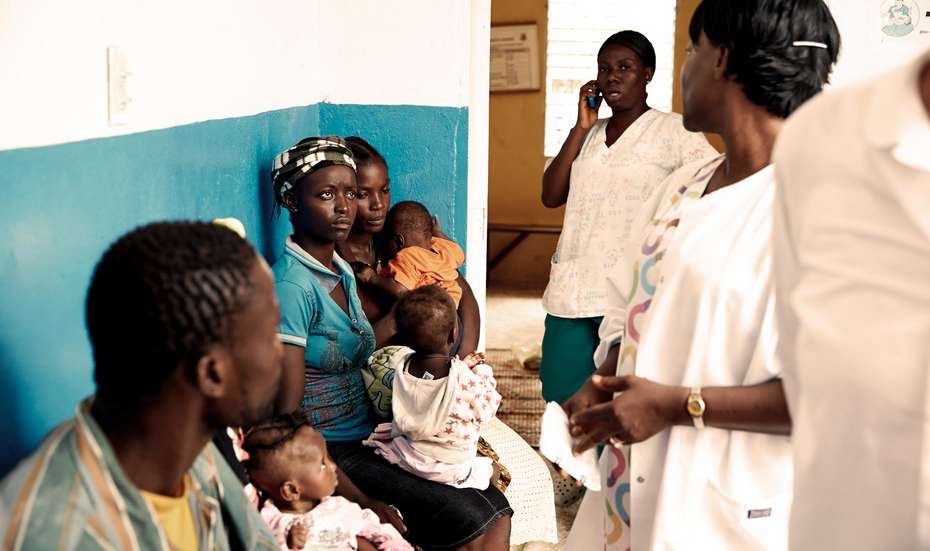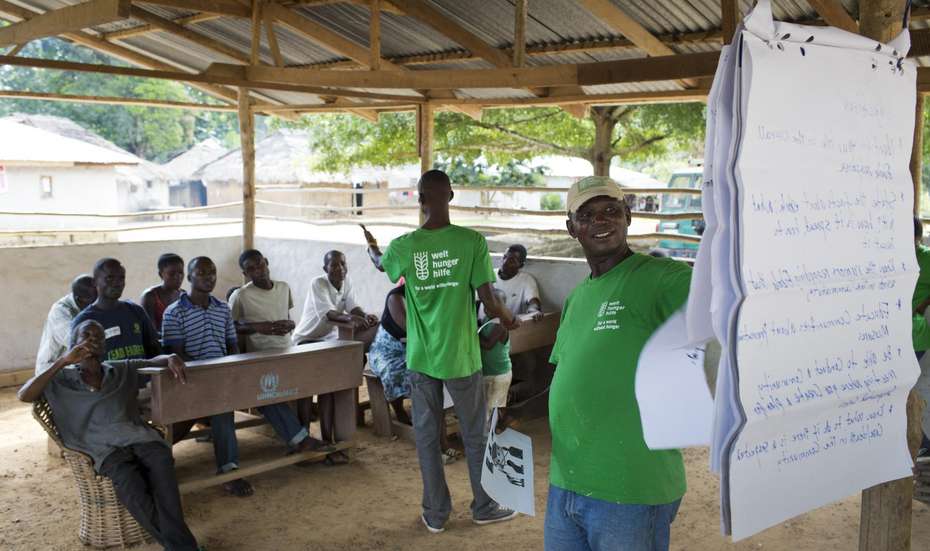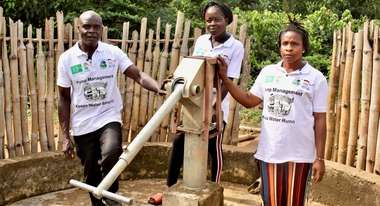Improving Health Care In Liberia And Sierra Leone
After the Ebola epidemic, the population is skeptical of the public health system. A functioning healthcare system needs to be established.

“I will not go to the hospital because they will only make me sicker.” This thought process is common in western Africa. It has its origin in the Ebola epidemic, which peaked from December 2013 to December 2015. Public clinics failed completely: Ebola patients were often not kept strictly isolated from the others, the hygiene conditions were catastrophic, and basic infection control was impossible.
People with malaria, pneumonia or diarrhoea also suffered under these conditions. Afraid of contracting Ebola, they refused to visit the clinics. The population is still extremely sceptical of the public health system. This is set to change: Welthungerhilfe has been collaborating with local partners in two districts in each of Sierra Leone and Liberia to establish a functioning and effective healthcare provider system.

High Rate of Illness Amongst Population
Approximately 410,000 residents are benefiting from this project. Many fought the Ebola virus themselves. Because of their illness, they are not able to work their fields, herd their livestock or do other kinds of work. Poverty and hunger have spread further than ever due to the epidemic, raising the rate of sickness in the population even more. Pregnant and breastfeeding women were particularly affected, as were children under the age of five, the elderly and the disabled.

It is for their benefit that Welthungerhilfe and its partners are constructing 35 modern health clinics and maternity wards and educating personnel, patients, management and government officials. Each health facility will receive a safe water supply. This includes adequate toilets and proper waste disposal.
The various measures stabilise the health care system in western Africa and help to restore public trust in state-run clinics.
How Welthungerhilfe Supports People in Liberia
- Citizens and healthcare professionals are educated in workshops on basic health and hygiene measures
- Equipping health care stations with electricity to allow patients to be treated at night
- Providing cooling systems for medications, vaccinations and basic medical supplies






